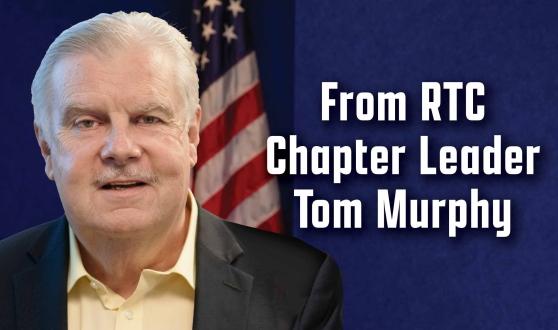
The American Federation of Teachers (AFT) recently asked me to fill its held position on the Senior Council of the Democratic National Committee (DNC). Since the Council’s purpose is to offer advice on strategic issues and policies important to retirees’ economic security and general livelihood, I gladly agreed.
The first meeting for me was on Feb. 14 in Washington as part of the broader DNC Winter Meeting. I attended not only the Senior Council but also the Labor Council, both of which focused on upcoming legislative and labor issues, giving a broad overview but also with some specifics, such as bills being introduced to both preserve and improve Social Security, Medicare and Medicaid.
Former UFT Vice President for Academic High Schools Leo Casey, who now directs the Albert Shanker Labor Institute, gave a powerful presentation on the recent rise of teacher activism that we are witnessing in places like West Virginia, Arizona, Los Angeles and elsewhere. The Labor Council is chaired by New Yorker Stewart Applebaum, the president of the Retail, Wholesale and Department Store Union. I think these councils are serving to be supportive of our political friends but, perhaps more important, to remind our friends that we are their base and must always be reckoned with. In politics you have to watch your friends and your enemies. You usually know what to expect from the bad guys — you’re never really certain about political allies.
Al Shanker, the former UFT and AFT president, once told us all that when it comes to public officials, you need to support your friends and oppose your enemies. As the UFT’s director of legislation and political action from 1990 to 2006, I developed a corollary: Whether friend or foe, hold their feet to the fire.
President John F. Kennedy, in his inaugural address, pointed out: Sincerity is always subject to proof. So I’m like a UFT/AFT watchdog. I’m enjoying the role.
On March 5, I was invited to be part of a small group discussion with DNC Chair Tom Perez, the former secretary of labor. He outlined the issues and priorities of his political party as we move from the successes in the 2018 congressional elections through this off year and toward the 2020 legislative and presidential election cycle.
Other presentations involved a rather frank analysis on how seniors stand on some of the more telling issues. The discussion recognized strengths as well as weaknesses. Here are some observations on senior voting tendencies based on exit polls taken over several election cycles and particularly in 2018:
- More seniors voted Republican in the last five elections, but the margins are decreasing.
- Democrats have done increasingly better with seniors, but remain behind in the national margin of votes.
- Seniors played a larger role in 2018 than in the past.
- Baby boomers, ages 50 to 68, are more Democratic than they were 25 years ago, but the silent generation, ages 69 to 86, is more Republican.
- Immigration and health care were the top two issues for all voters in 2018, but Social Security and Medicare were disproportionately important for seniors.
- Seniors trust Democrats more on the environment, health care, education, energy and sexual harassment. They trust Republicans more on immigration, jobs, the economy and national security. Seniors strongly favor policies to expand Social Security benefits and allow Medicare to negotiate with drug companies to bring down prescription drug prices.
- Seniors favor Obamacare by an increasing margin since 2016.
- Seniors believe that preventing damage to the climate will help the economy, health and jobs.
- Racial issues continue to divide voters, with younger ones saying too little attention is paid to them and seniors saying too much attention is given to them.
- Voters up to age 65 see a role for government to create opportunities while those older than 65 much less so.
As labor unionists, our retirees more likely tilt to the progressive side of these issues than do nonunion seniors, as indicated by other polling and observations. But it is important to know where all senior voters stand to understand the mood of the electorate. It remains a political truism that retirees vote in larger numbers than younger people. Any candidate or any political operation would be wise to account for that. Our retired members have voting in their DNA. And we don’t like to be ignored.
I’ll keep you posted on what the DNC Senior Council is up to and how we can all play a role in promoting organized labor’s bread-and-butter concerns.
This year represents the calm before the political storms of 2020. But I know we all will be ready for the tempest and will participate with fervor.